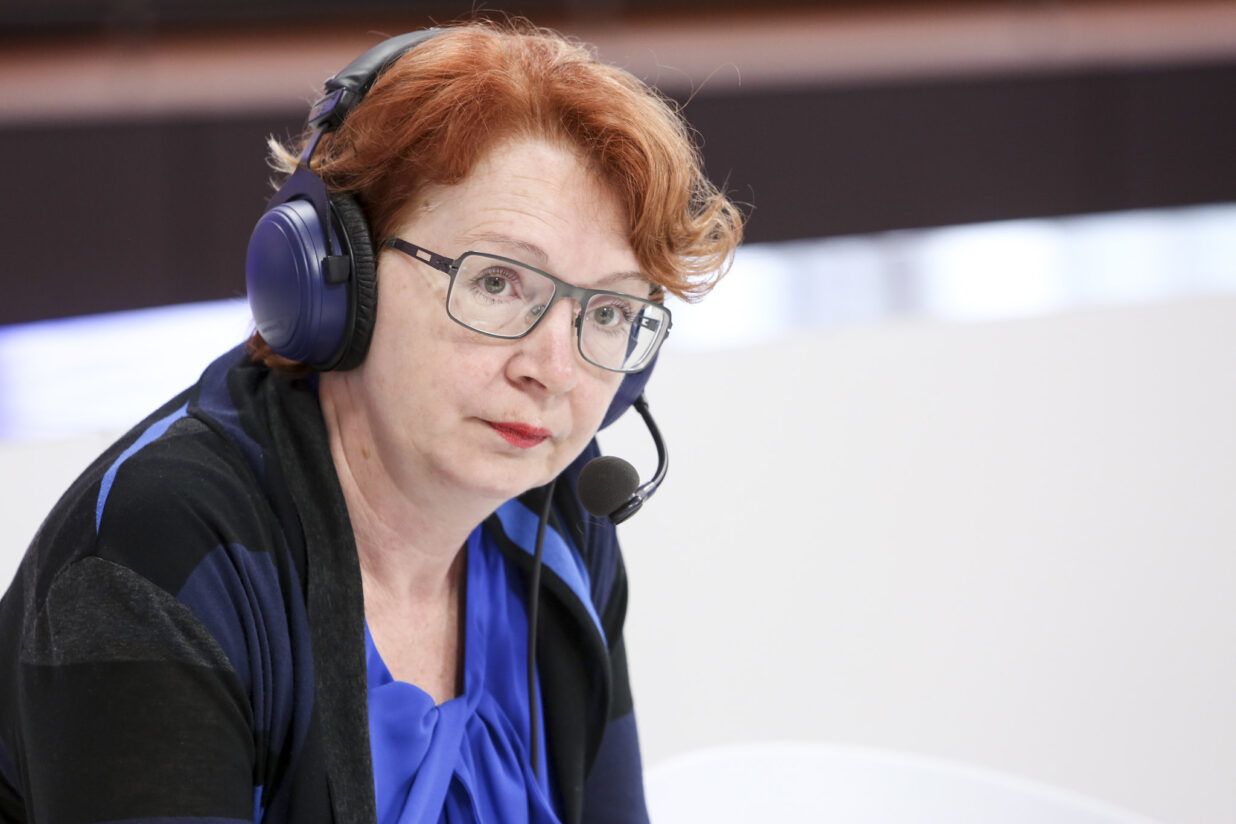17.02.2024 - 11:55
|
Actualització: 17.02.2024 - 11:57
The European Parliament voted a week ago on a resolution to investigate Russian interference in the European Union. The text was promoted due to allegations that Latvian MEP Tatjana Ždanoka had worked as an informant for the Russian government, but the PP and Ciudadanos managed to include an amendment referring to the alleged but never proven contacts between Catalan separatism and Russia, stating that “if confirmed”, they would be very serious.
The motion also stated that there were more MEPs serving Russian interests, and called for an investigation into any possible cases of Russian interference or any other malicious activities within the European Parliament. The text was approved by an overwhelming majority: 433 votes in favor, 56 against, and 18 abstentions.
Among these votes, the vote of another MEP stands out, increasingly criticized in her country of origin for defending Russian interests and for failing to condemn human rights violations by Russian authorities. It is Jana Toom, known in Catalonia for chairing the mission of MEPs questioning linguistic immersion.
Toom was born in Tallinn in 1966 when Estonia was part of the USSR, the daughter of Russian parents. She studied at a school where Russian was the language of instruction, and at university, she studied Russian philology. As a Russian speaker in Estonia, where since independence Estonian has been protected, spoken by little more than a million people, she believes that Russian language and culture are under attack and do not receive enough attention as a minority. A perspective she transferred to the Catalan case when she portrayed Spanish speakers in Catalonia as a minority whose rights were not respected. All this, ignoring the fact that Russian is spoken by nearly 260 million people worldwide, and Spanish, by almost 600 million people.
Toom voted in favor of the resolution against Russian interference in the European Union. A stance that, in a short time, could turn against her. With the European elections around the corner, there are those in Estonia who distrust her as an Estonian political representative in a context of tension with Russia that has only increased since the invasion of Ukraine.
This same week, Russia ordered the detention of the Estonian Prime Minister, Kaja Kallas, and the Estonian Secretary of State, Taimar Peterkop, for the removal of Soviet monuments following the war in Ukraine. The Minister of Culture of Lithuania, Simonas Kairys, was also added to this list.
The former Estonian Prime Minister Jüri Ratas, from the same party as Toom, the Estonian Center Party, has openly criticized the MEP and said that she was a danger to the party’s reputation and to Estonia itself if Toom were to run for the European elections again. “For how long can an Estonian politician who is also a member of the European Parliament continue to play with this? It is a matter of state in Estonia,” he said. Ratas referred to Toom’s legal and financial support for Zoja Paljamar, a pro-Russia activist expelled by Estonia from the entire Schengen area for ten years on charges of having links with the Russian government. In December, the Estonian newspaper Eesti Päevaleht revealed that Toom was financing Paljamar’s legal defense at the European Court of Human Rights, where she had taken her expulsion. In fact, Paljamar is not an exception: Toom admitted to giving advice or money to four people, at least, expelled to Russia and considered a danger by Estonia.
“Whether she pays with her own money or not, representing and defending in an Estonian court someone who is actually pro-Kremlin, I don’t think it’s right. Such behavior should not be tolerated at the top of Estonian politics,” added Ratas, who also recalled the controversy over trips to Syria in 2016 and 2017, during the civil war when she was directly received by President Bashar al-Assad.
Toom justified herself by saying that she did not go there to congratulate al-Assad, whom she labeled as a dictator, but to see the Syrian reality firsthand and see how she could help the population affected by sanctions.
However, none of this spared her criticism from her fellow Members of the European Parliament, who disavowed her and said they would not pay any expenses for the trip. A few weeks ago, Ratas ended up leaving the party because he did not want to share political space with Toom.
Jana Toom is part of the Renew Europe group, which also includes MEPs from Renaissance, Emmanuel Macron’s party, and Ciudadanos. It is common for any resolution condemning Russia’s actions to be supported by Renew MEPs, but Toom tends to distance herself or pretend to be indifferent.
It happened in September 2020 when she abstained from a resolution denouncing the poisoning of Russian opposition leader Alexei Navalny, who had to be treated medically in Germany. Once recovered, he decided to return to Russia and was imprisoned. In April 2021, Toom voted against a resolution denouncing torture and inhumane treatment of Navalny and calling for his immediate release. The text also expressed support for the sovereignty and territorial integrity of Ukraine at a time when Russia was amassing troops on the border in a prelude to invasion. Just yesterday, Russian prison authorities announced Navalny’s death in the Siberian prison where he was held.
A few months later, in June 2021, Toom voted against a resolution calling for the release of activist Andrei Pivovarov, who had been detained a few weeks earlier, and for the removal of the classification as “undesirable” given by the Russian prosecutor’s office to thirty-four foreign NGOs, including three from Germany.
In September of that same year, the European Parliament approved a document that redefined the European Union’s relationship with Russia following the annexation of Crimea and the degradation of human rights in Russia. The text was highly critical of the Russian government and its president, Vladimir Putin, and defined them as “the greatest threat to European security.” Once again, Toom voted against it.
In a resolution in December 2021 condemning continued repression against civil society and human rights organizations in Russia, Toom abstained. The text focused particularly on the persecution of Memorial, an organization that collected and disseminated information about Soviet repression and subsequent governments, which was outlawed shortly after the vote. The same session also voted on a new resolution that again criticized the movement of Russian troops to the border with Ukraine, and Toom voted against it.
After months of tension, Russia attacked Ukraine on February 22, 2022. This marked the beginning of an ongoing conflict that has led to Russia’s international isolation. Toom voted in favor of the resolution passed a few days later condemning the Russian attack. However, a few months later, she told NPR, the US public radio network, that it was “political suicide” for her party, the Estonian Center Party, to firmly condemn Russia’s invasion of Ukraine because many of its Russian-speaking voters supported Kremlin actions.
Nevertheless, in February 2023, one year after the start of the war, she again voted in favor of a resolution calling for an end to the invasion.
Toom has won the arm-wrestling match posed by former Prime Minister Jüri Ratas and has managed to retain her positions as MEP and as vice-president of the party. She has made it clear that she intends to run for election again and has even raised the possibility that the Estonian Center Party will leave the Renew Europe group and request to join the Social Democrats.
In an interview with Estonian Public Radio, she said that Renew had changed over time, and it would be a good idea to reconsider if it was still her place. “I think we should look at where we really belong because I often vote like the socialists and not like the Reform Party [another Estonian party that is also a member of Renew Europe],” she said.
The decision will be made by the party leadership, but it is not yet certain that she will have enough support. Kadri Simson, European Commissioner for Energy and also a member of the Center Party, opposes it due to international relations with other Baltic parties: “The Renew family also includes the Finnish Center Party and the Swedish Center Party. They are historically very close parties to us, we have a close relationship with them. In contrast, the Finnish and Swedish social democrats have decades of cooperation with the Estonian social democrats.”



